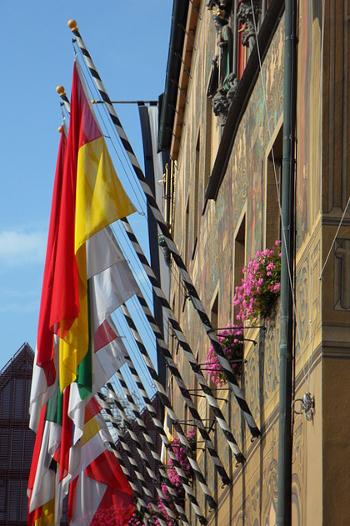National days
Duration/age

Most countries have a special day every year that is a holiday and a day of celebration. The day is an annual event that everyone from that country can celebrate and remember. It is a special event that brings them together as a nation.
The day might celebrate the end of a war, the first day of independence or a significant custom or tradition.
Spanish families celebrate el Dí a de la Raza on the 12th of October. Some families call this Christopher Columbus day. The day celebrates his discovery of America.
Talk with your child about the customs and traditions that are celebrated on national days. Will special food be served? Will there be a community event with music, singing and dancing? Will families travel to a special place to leave gifts and flowers?
Skills this activity improves
Why does this matter?
As you talk to your child and involve them when preparing for a national day they are learning about planning and measurement. They are developing the language they need to talk about what they are doing.
Explore with your child when the national day will happen or what tasks can be done at the same time. As you do this your child will be beginning to sort and group activities.
Hearing and listening to instructions and language that include quantity, number and measurement helps your child to learn to follow directions. It will help them develop the language they need to ask questions if they don’t know what to do.
What does this lead to?
Sharing traditional and important events from your own culture and family helps your child to develop a strong cultural identity. The sharing of family and cultural events helps to keep the stories alive and to pass on important information about the family, behaviours and traditions that are often not written down.
Talking together about what will happen at a national day helps your child to ask questions. As they notice objects they can group them and compare the differences. As they talk about what they notice they are developing language to describe their thinking and observations.
As children explore time they are learning to make predictions about when things will happen, how often they will occur and the likelihood of it happening.
Time can be represented as a numeral on a clock, as an event or something that happens at different times of the day. Time can be represented as something that will happen very soon or is over quickly. It can be an event that lasts a long time or something that we need to wait to happen. When we talk about time as an event or a routine, children are developing an understanding that we might use different language.
Language to use
- National day, independence day
- Custom, culture, tradition
- Day, date, month, year, annual
- Symbol, commemorate, remember, celebrate
- Event, party, ceremony
Questions to use
- Were all people born in Australia?
- If you weren’t born in Australia where could you have been born?
- Does every country have a national day?
Useful tips
- You might also like to take a look at the activities Calendars and What's the time, Mr Wolf?.
- For more ideas about cultural events and celebrations take a look at Let's celebrate and Festivals.
- Remember to talk to your child in your home language.
More ideas
- Borrow books from the library on different national days and cultural celebrations.
- Make a storybook about how you celebrate Australia Day. Interview other families and friends to see if they celebrate Australia day the same way as you.
Variation by age
Three to five year olds
- Make a list of the different national days your family celebrates. Once you have your list mark them off on the family calendar.
- Sort the days your family celebrates into different groups. Try grouping by how long the celebration lasts, the season the festival is held in or by what happens at the festival.
- If the day involves a costume or dressing up allow your child to help make or prepare the costume.
- Ask your child to help make traditional food that will be eaten during the celebrations. You could include the recipe in your family cookbook.
Questions to ask
- Do we celebrate a national day?
- Do all national days have a public holiday?


